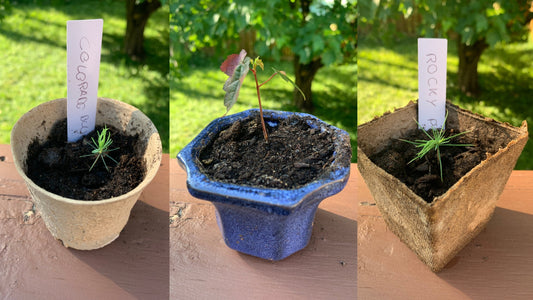Contrary to popular belief, Ikigai is not a simplified concept of "finding your passion" or "balancing work and personal life". It is a Japanese way of life that invites you to take pleasure in the small actions of everyday life, to live each moment to the fullest, and to find meaning in the simplicity of life. It is a state of mind that can be cultivated through habits and environments conducive to inner peace. By the way, if you want to know more about ikigai, we have written several articles on the subject!
Creating a Zen space at home is one way to foster this state of mind. In this article, we will offer you practical ideas to transform your home into a sanctuary of serenity and well-being. A Zen space, carefully designed, can become a place where we take the time to slow down, reflect, and live in harmony with ourselves and our environment, thus promoting Ikigai in our daily lives.
1. What is Ikigai?
Ikigai is a Japanese concept that is often misinterpreted in the West. It is not about finding a great life mission or combining passion, talent, mission and profession, as we sometimes read. In reality, Ikigai refers to the small everyday things that bring satisfaction and meaning to life. It is a way of living in full awareness, valuing simple pleasures and moments of joy. Ikigai is not a quest for performance or success, but rather a way of reconnecting with oneself through daily activities that nourish the soul and spirit. It is in this balance that everyone can find their own Ikigai.
2. The Importance of a Zen Space to Promote Ikigai
A Zen space plays an essential role in the practice of Ikigai, as it creates an environment conducive to reflection, relaxation, and appreciation of the small joys of everyday life. By eliminating external distractions and promoting simplicity, a Zen space becomes a place where one can slow down and reconnect with oneself. This calming environment helps cultivate mindfulness, which is essential for savoring each moment and discovering one's own Ikigai.

Creating a space of serenity at home also helps reduce stress and improve concentration. Whether for meditating, reading or simply breathing, a Zen space helps to release tension and better appreciate daily activities. Ikigai, far from grand ambitions, flourishes in these moments of calm and balance that only a Zen space can promote.
3. The Key Elements of a Zen Space
Creating a Zen space at home requires paying attention to specific elements that promote calm and focus, while aligning the space with the principles of Ikigai. Anyone can create a Zen space for themselves or their partner! Here are the essential elements to consider:
Minimalism
A Zen space should be stripped of all that is superfluous. Visual clutter can create stress and distractions. Take a minimalist approach by keeping only the objects that have real meaning or use to you. Find a place that is not the junk closet!
Natural materials
Integrating materials such as wood, bamboo or cotton allows you to reconnect with nature. These materials bring an organic warmth to your space, in resonance with the values of simplicity and authenticity. This can be through frames, a lampshade, a wooden coffee table.
Natural light
Making good use of natural light helps create a soothing atmosphere. Opt for light curtains that let in daylight and avoid lighting that is too intense. Of course, the ideal would be a south-facing solarium, but not everyone is so lucky! In any case, don't lock yourself in the cellar.
Plants
Plants, such as bonsai, play an essential role in a Zen space. Not only do they bring a touch of nature, they also allow you to reconnect with the cycles of life and cultivate patience. Of course, we encourage you to order our Bonsai Box with a minimum of 5 seeds of 4 species of bonsai, this can fill your Zen space.
Symbolic objects
Objects such as candles, stones or minimalist artwork can serve to enhance the serenity of the space. Make sure that each element has a purpose and contributes to the overall harmony.
By combining these elements, you can create a space conducive to meditation, reflection and appreciation of simple pleasures, which are essential to fostering Ikigai.
4. Concrete example of a Zen space on a small budget
It is entirely possible to create a Zen space on a budget. For example, a simple meditation corner in a room can be set up with floor cushions, a few candles for a calming atmosphere, and a small plant like a bonsai to add a touch of greenery.
Furniture can be repurposed or purchased second-hand to adhere to the principle of minimalism, and natural textiles, such as a jute or cotton rug, can be found at low prices. By opting for simple and natural elements, you can create a Zen space without breaking the bank while cultivating your Ikigai.
5. Create a Zen Routine in Your Space
Establishing a Zen routine in your space is essential to integrating Ikigai into your daily life. A well-thought-out routine allows you to transform your environment into a sanctuary of serenity and connection to yourself. Here are some simple steps to achieve this:
Morning Meditation

Start each day with a few minutes of meditation. Find a quiet corner in your Zen space, sit comfortably, and focus on your breathing. This practice helps you start the day with clarity and tranquility.
Never meditated before? Start with a short guided meditation (3-10 minutes), there are examples on Netflix, Youtube and Spotify for free.
Gratitude Rituals
Take time each day to reflect on what you are grateful for. Write your thoughts in a journal, focusing on the little things that bring happiness, strengthening your connection to Ikigai. Why write? Because what it means to take the time to reflect and put your thoughts on paper.
Here are 10 sample gratitude journal questions to ask yourself every day:
- What am I lucky to have that others don't?
- What did I learn today?
- Who in my life brought me joy today?
- What aspect of your physical health am I grateful for?
- Who was I able to help today?
- What is the most delicious thing I ate today?
- What movie, series, book, podcast or article has really had an impact on me recently?
- How have I been kind to myself and others today?
- How many of my basic needs do I not have to worry about meeting today?
- What excites me about my day tomorrow?
Obviously, there are gratitude journals that exist with pre-written sample questions.
Moments of Silence
Incorporate quiet breaks into your daily routine. Whether it’s over a cup of tea or a few moments before bed, these moments help you refocus and appreciate the stillness.
An easy example would be walking around for 15-20 minutes without a podcast or music in your ears and without a specific goal.
Creative Activities
Make time to explore activities that nourish your mind and creativity, such as drawing, playing a musical instrument, writing, or gardening. These practices enrich your Zen space and strengthen your sense of accomplishment.

Digital Disconnection
Obviously, one of the most effective ways to find your Ikigai is to disconnect from screens to take the time to connect with yourself.
By incorporating these elements into your daily life, you can create a zen routine that helps you live Ikigai to the fullest. An organized and calming space, combined with regular rituals, will promote a positive state of mind and a better connection to yourself.
Conclusion
Creating a Zen space at home is an enriching process that promotes Ikigai, this reason for living rooted in the simple pleasures of everyday life. By incorporating key elements such as minimalism, nature and symbolic objects, you can transform any corner of your home into a refuge of peace and serenity. In addition, establishing a Zen routine reinforces this calming atmosphere, allowing you to live each day with intention and mindfulness.
Remember that Ikigai is discovered in moments of calm and harmony. By cultivating this space and routine, you give yourself the opportunity to reconnect with yourself and savor each moment. Embracing Ikigai is not a destination, but an ongoing journey toward a more fulfilling way of life. Take the time to create your own oasis of tranquility and let your zen space become the fertile ground for your well-being.





